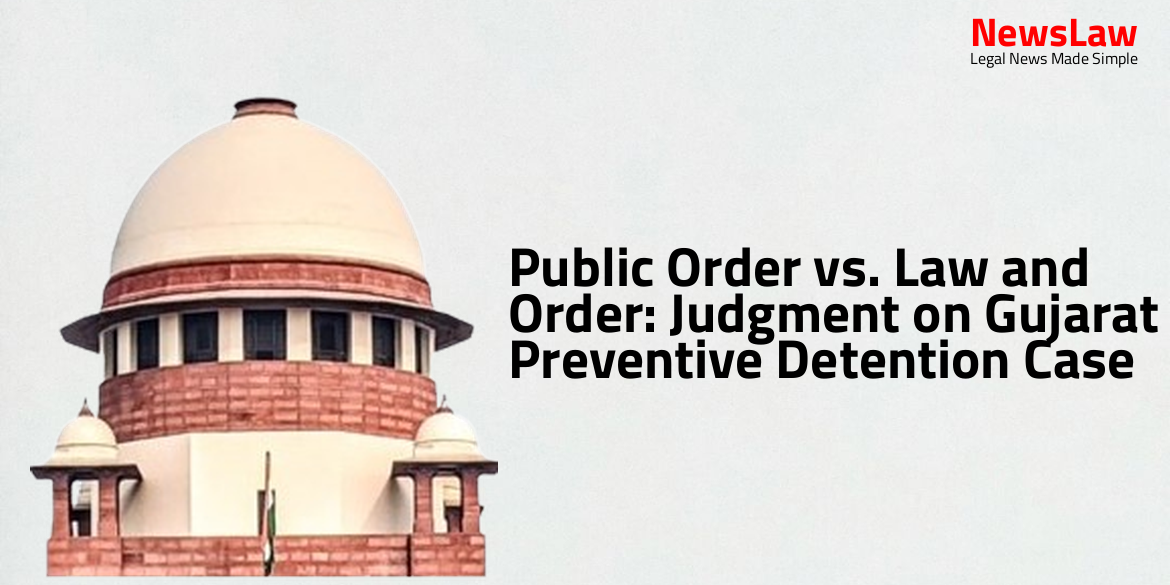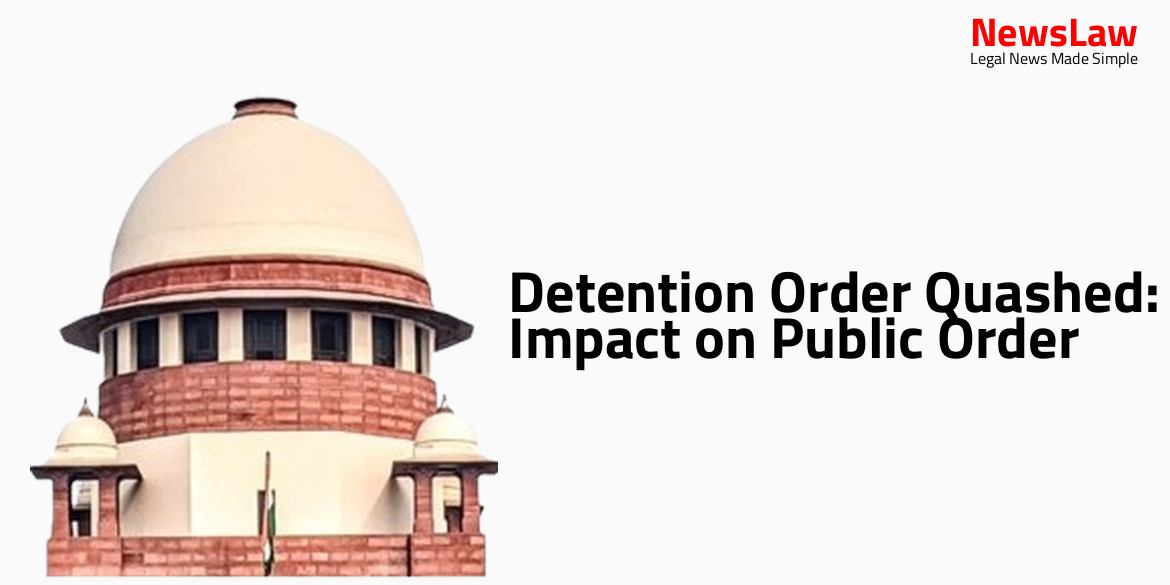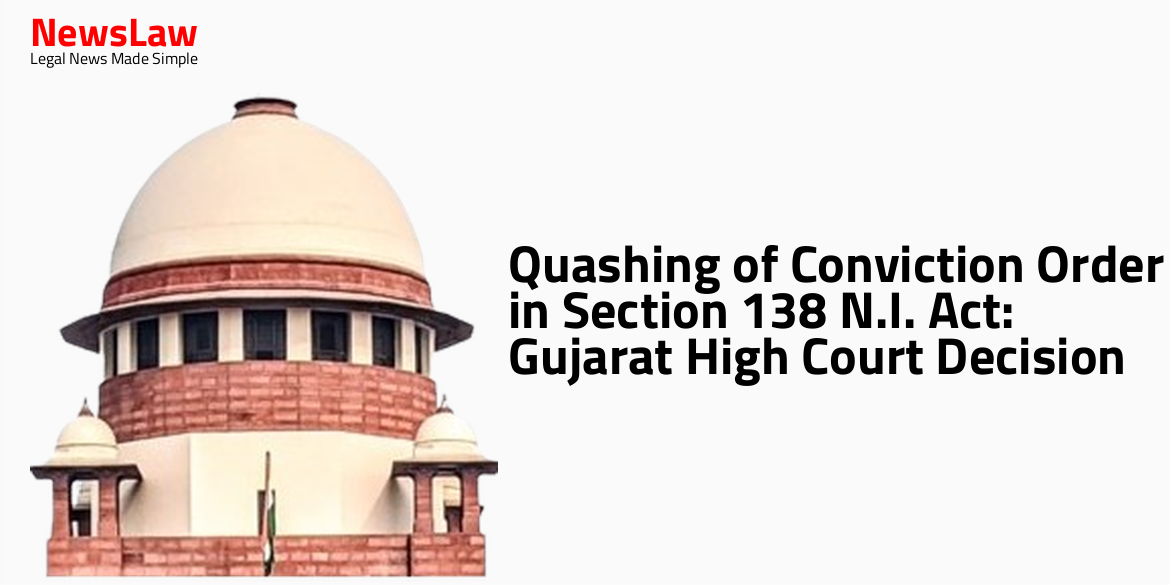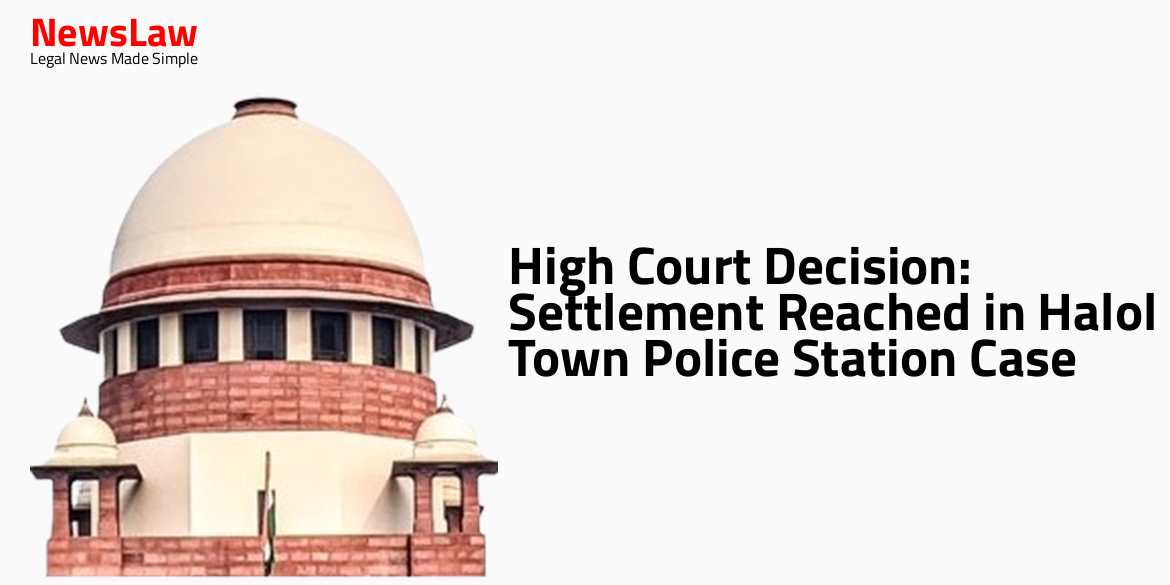Exploring the nuances of public order and law and order, the Gujarat High Court delivers a crucial judgment in the case of preventive detention. The case delves into the detention order passed by the Detaining Authority under the Gujarat Prevention of Anti-social Activities Act, 1985. Stay tuned for insights on maintaining public order in the face of alleged law and order concerns.
Facts
- The petitioner Mahesh @ Bhado Rambhai Bathvar was preventively detained under the Gujarat Prevention of Anti-social Activities Act, 1985 by the District Magistrate, Porbandar.
- The petitioner challenged the legality and validity of the detention order dated 13.10.2023.
- The petitioner was classified as a ‘dangerous person’ under Section 2(c) of the Act of 1985.
Issue
- Issue is whether the order of detention passed by the Detaining Authority under the Act of 1985 is legally sustainable
- Petitioner is currently in jail as a result of the impugned order of detention
- The court needs to determine if this case involves a substantial question of law relating to the interpretation of the Constitution of India or any order made thereunder
Arguments
- The Detaining Authority passed the impugned order to prevent the detenue from acting in any manner prejudicial to public order in Porbandar.
- The detenue is considered a habitual offender whose activities have affected society at large.
- The Detaining Authority took into account the antecedents and past activities of the detenue while passing the order.
- The advocate for the detenue argues that the grounds of detention do not have a nexus to public order but are related to law and order only.
- The advocate claims that the alleged offenses by the detenue do not adversely affect or are likely to affect the maintenance of public order as per the law.
- The advocate argues that the detenue’s activities may be prejudicial to law and order but not to public order.
- The State Counsel, on the other hand, opposes the application, stating that the offenses committed by the detenue do have a bearing on the maintenance of public order.
- There is a contention between the detenue’s advocate and the State Counsel regarding whether the detention is justified based on concerns of public order or law and order.
Analysis
- Drawing a line between serious/aggravated forms of disorder and relatively minor breaches of peace
- Emphasizing the distinction between incidents affecting the community/public interest and local incidents
- Stating that incidents in question do not impact the maintenance of public order
- Mentioning five criminal cases against the petitioner, where bail was granted in all cases
- Acknowledging incidents of beating by the petitioner as alleged by witnesses
- Asserting that the acts constituting alleged offences did not disrupt the community’s even tempo of life
- Critiquing the detaining authority’s failure to prove how the petitioner’s activities affect public order
- Assault or injury to specific persons do not always lead to public disorder.
- Acts of quarrel and assault between two individuals do not constitute public disorder.
- Such cases are dealt with under ordinary criminal law, not grounds for detaining culprits for disturbing public order.
- Contravention of any law affects order, but for it to affect public order, it must impact the community at large.
- Detention order based on five criminal cases deemed not prejudicial to public order.
- Reference to the case of Piyush Kantilal Mehta Vs. Commissioner of Police, Ahmedabad regarding detention order based on prohibition offences.
- Mere disturbance of law and order is not sufficient for action under preventive detention Act, must affect public order.
- Distinction between ‘law and order’ and ‘public order’ as per the case of Pushkar Mukherjee v. State of West Bengal explained.
- Preventive detention under the Act cannot be imposed unless the activities of the individual as a bootlegger have or are likely to have an adverse impact on public order
- The individual must be directly involved in bootlegging activities to be subject to preventive detention
- The Act aims to maintain public order by detaining individuals whose bootlegging activities pose a threat to it
- Offences alleged against the petitioner were not found to create any feeling of insecurity, panic, or terror among the public.
- The allegations made by witnesses were also considered to not impact public order.
- The material on record was deemed insufficient to prove adverse effects on public order due to the detenue’s activities.
- The subjective satisfaction of the detaining authority was found not to be legal, valid, or in accordance with the law.
- Therefore, the order of detention was not upheld.
Decision
- The petition has been allowed.
- Direct service is permitted.
- The detenue is directed to be set at liberty immediately if not required in any other case.
- The rule is made absolute, and the order dated 13.10.2023 passed by the authority is quashed.
Case Title: MAHESH @ BHADO RAMBHAI BATHVAR THROUGH HIS MOTHER NIMUBEN RAMBHAI BATHVAR Vs. STATE OF GUJARAT
Case Number: R/SCA/7706/2024



